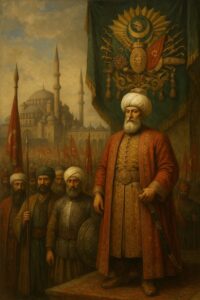In 1915, amid the chaos of World War I, the Ottoman Empire began a brutal campaign against its Armenian population—an event that would later be recognized as one of the first modern genocides. Over the course of several years, an estimated 1.5 million Armenians were systematically killed through mass executions, forced death marches, and starvation. The Armenian Genocide was not merely a byproduct of war but a calculated effort to erase an entire people. Despite overwhelming historical evidence, the tragedy remains a subject of political controversy and denial, making remembrance and recognition more crucial than ever.
The persecution of Armenians had been building for decades, but on April 24, 1915, the genocide officially began when hundreds of Armenian intellectuals and community leaders were arrested and executed in Constantinople (modern-day Istanbul). This marked the start of widespread deportations and massacres, as Armenians were driven from their homes and sent on grueling marches across the Syrian desert. Many perished from exhaustion, starvation, or outright murder at the hands of Ottoman forces and paramilitary groups. Women and children were often subjected to unspeakable atrocities, further deepening the horror of this dark period.
While the Ottoman government justified its actions as a response to potential Armenian uprisings, the scale and intent of the violence revealed a deliberate attempt at extermination. Survivors who managed to escape fled to countries around the world, forming a vast Armenian diaspora that continues to honor the memory of those lost. Despite the undeniable evidence—including eyewitness accounts, diplomatic reports, and photographic documentation—some governments and political groups have resisted labeling the events as “genocide,” fearing diplomatic fallout with Turkey, the successor state of the Ottoman Empire.
Recognizing the Armenian Genocide is not just about acknowledging history—it’s about ensuring that such atrocities are never repeated. The world has witnessed other genocides in the 20th and 21st centuries, proving that the lessons of the past have not always been heeded. By remembering and educating future generations, we reaffirm our commitment to justice and human rights. The Armenian Genocide remains a painful reminder of what can happen when hatred and intolerance go unchecked, and it calls upon all of us to stand against denial and indifference.

